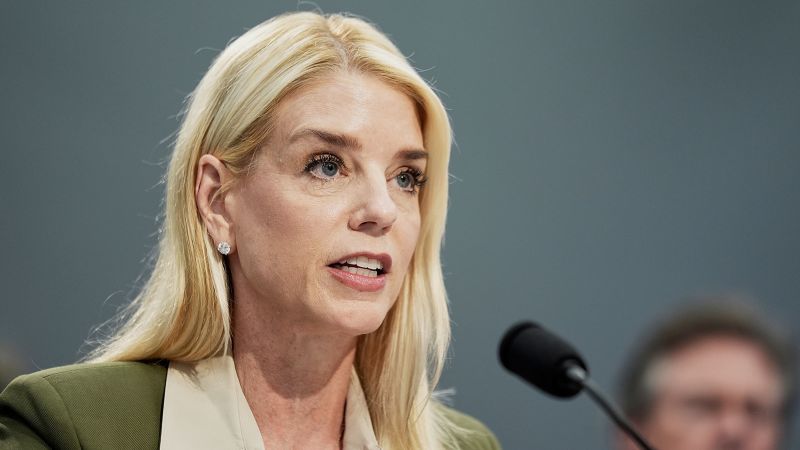On Thursday evening, Attorney General Pam Bondi took decisive action to challenge the sanctuary city policies in Washington, D.C. By directing the mayor and police department of the capital, Bondi initiated a federal intervention that aimed to tighten control over local law enforcement and immigration enforcement. This move signifies a broader push from the Trump administration to reinforce hardline immigration measures deep within the nation’s political landscape.
In a formal order, Bondi appointed Terry Cole, the head of the Drug Enforcement Administration (DEA), as the “emergency police commissioner” for the District of Columbia. This appointment grants Cole unprecedented authority over the District’s police department during this federally mandated takeover. The implication of this elevation in command suggests a systematic shift in how immigration-related issues might be handled within D.C., reflecting a strong stance on immigration enforcement by the federal government.
Adding to this takeover, Bondi instructed the D.C. Metropolitan Police Department (MPD) to rescind a directive issued earlier in the day by Chief Pamela Smith. This directive had restricted officers from sharing detailed information with federal immigration officials, a policy aimed at safeguarding the rights and privacy of undocumented immigrants living in the city. By mandating a review of this policy, Bondi made it clear that federal demands for cooperation would take precedence over local law enforcement guidelines. According to sources within the Justice Department, the earlier directive was seen as a reinforcement of the type of sanctuary policies that the federal government has been adamant about eradicating.
Furthermore, Bondi directed Mayor Muriel Bowser to dismantle two additional police policies intended to safeguard undocumented immigrants. One of these policies specifically prohibits the MPD from arresting individuals solely based on federal immigration warrants. The potential implications of such a directive could further engage local police in immigration enforcement, a responsibility many in D.C. aim to keep at a distance for ethical and community harmony reasons.
The reaction from local government representatives has been one of skepticism and resistance. Christina Henderson, a member of the D.C. City Council, took to social media to assert that the Attorney General lacks the authority to override local laws and policies. This tension raises questions about the balance of power between federal mandates and the rights of local jurisdictions to govern their own communities without federal interference.
Earlier the same day, Chief Smith had signed a different executive order that allowed D.C. police officers to share information with federal immigration agencies regarding individuals not in their custody. In addition, this order permitted local law enforcement to assist in transporting federal officials and their detainees. However, this cooperation remains bound by D.C. law, which currently protects undocumented immigrants from being questioned solely about their immigration status. The city law prohibits officers from seeking information based on immigration status only, highlighting the complex legal landscape and interagency friction.
Attorney General Bondi’s strong statements emphasize the administration’s intent as she affirmed during an interview that D.C. “will not remain a sanctuary city actively shielding criminal aliens.” This position underscores a broader thematic shift in U.S. immigration policy under the Trump administration, signaling a move toward tightly controlled local frameworks that align with federal enforcement objectives.
As the DC police force navigates these new orders, questions linger about how the local authorities will respond. Whether they will comply with these federal directives remains uncertain, and the ramifications of this intervention continue to unfold. The tension between federal enforcement objectives and local resistance illustrates the complexities surrounding immigration policy and law enforcement today. As this story develops, observers will undoubtedly keep a close watch on the actions of both local and federal authorities in the days and weeks to follow.











